- Sarasota Acupuncture Wellness Center2886b Ringling Blvd
Sarasota, FL 34237941-735-9503 Clinic Hours
By Appointment
- Sign up to receive news and updates and get my free report:“The Top 10 Reasons to Try Acupuncture”

- Testimonials
I became a patient of Dr. Kitty’s several years ago, and I can truely say that she is one of the most nurturing and compassionate caregivers that I have ever had the pleasure of seeing. Her treatments result in a completely stress-free mellowness and are all encompassing for the mind, body and spirit. Dr. Kitty genuinely cares about your health in totality as it affects your everyday life. Her expertise in acupuncture and holistic practices, complimented by her sage advice
... Read more »Acupuncture has enhanced my quality of life: from living with overwhelming stress,
inability to deal with it, high blood pressure and all the ailments that come with it. I
now enjoy the knowledge of “breathing”, the conscious awareness of my “inner me”
and how profoundly it all comes together.
Dr. Kitty has a very special approach to acupuncture. She refers to it as a “her gift”
to others and it reveals itself in the way she treats her patients. She
... Read more »I have been treated by Kitty for nearly two years and am extremely pleased with her services plus the progress I’ve made. When I first met her I was suffering from severe sinus and allergy problems plus very high stress. My respiratory problems are nearly gone and my stress levels are now manageable. Kitty is the kindest, gentlest and most caring practioner I’ve ever been blessed to meet. I highly recommend her services. She has greatly improved the quality of
... Read more »I have had two acupuncture treatments and they were wonderful. There was no pain. I could feel the energy flowing through my body. It was the most relaxing and energizing experience I have ever had. I can’t wait for my third.
Candy Spaulding
-
Latest Articles:
- • 10 Family-Friendly Activities Perfect for Spring •
- • 3 Easy Spring Dinner Ideas for a Fresh and Flavorful Season •
- • 5 Tips to Boost Your Spring Wellness Routine •
Acupuncture
Honest Answers to Your Top Acupuncture Questions
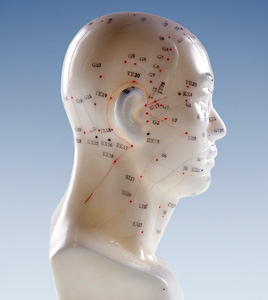 A few weeks ago, I asked for your most pressing acupuncture questions. I’ve compiled the most common questions and I noticed one distinct trend—there are a lot of questions about the needles. Some of you must be nervous about getting needled!
A few weeks ago, I asked for your most pressing acupuncture questions. I’ve compiled the most common questions and I noticed one distinct trend—there are a lot of questions about the needles. Some of you must be nervous about getting needled!
If these acupuncture answers don’t put your fears to rest, call me for more information. Acupuncture brings good health, relaxation and vitality. I don’t want fear to stop you from getting treatment. continue reading
The Best Home Gym Equipment for Less than $50
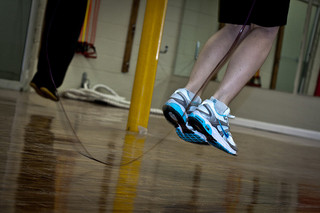 Don’t you love how great you feel when you work out regularly?
Don’t you love how great you feel when you work out regularly?
You’re alert, you sleep better, and it’s easier to stay calm and optimistic. Once you get in the routine of working out and keeping a healthy routine, it’s fun.
But there’s always something that stops you. For most of us, it’s either time or money. We don’t have time, and gym memberships are too expensive.
Let’s imagine a dream solution. You want the fitness tools you find in a gym but you want to do it at home so it’s convenient. You want aerobics, strength and stretching so you have a good holistic workout.
And most importantly, you don’t want to spend more than $50 on any piece of equipment.
Can you build a home gym with that budget?
continue reading
Compassionate, Free Help for Veterans with PTSD
 You’ve seen the strained look on her face. She’s far away. She doesn’t sleep well and sits around all day doing nothing. She’s always tired. You’ve invited her to the things she loves doing, but she never feels like doing them anymore. Sometimes she yells a lot—really overreacts. But when you ask her what’s wrong, she denies any problems.
You’ve seen the strained look on her face. She’s far away. She doesn’t sleep well and sits around all day doing nothing. She’s always tired. You’ve invited her to the things she loves doing, but she never feels like doing them anymore. Sometimes she yells a lot—really overreacts. But when you ask her what’s wrong, she denies any problems.
You’re happy she is back from Iraq, but you thought it would be different. You thought you could get back to normal.
You thought that having her home safe would make both of you happy again. She’s not at war anymore—why is she acting this way?
Your loved one may have post-traumatic stress disorder (PTSD).
Many veterans suffer from PTSD. The Veterans Administration (VA) reports that as many as 11-20% of veterans of the Iraq and Afghanistan wars have it. Common war traumas include having been shot at, having seen someone shot or having seen death, but another cause of PTSD in veterans is military sexual trauma (MST). According to the VA, 23% of women in the military report sexual assault.
These numbers are scary but the good news is that there is help. There are even free clinics that provide acupuncture. continue reading
What Are Your Acupuncture Questions?
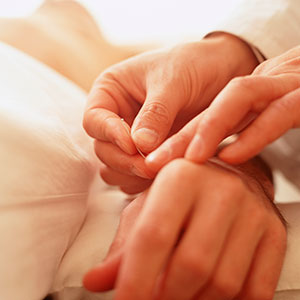 Questions? Comments? Concerns?
Questions? Comments? Concerns?
Normally I use this blog to tell you a little about my favorite topics, Traditional Chinese Medicine (TCM), acupuncture and natural health. But today I want to do something different.
I want to learn more about you.
Today I want to know what your concerns and questions are.
Ask me anything, basic or complicated. Ask about TCM, acupuncture or general health. Ask about injuries, illness or disease. Whatever is on your mind, ask the question.
Contact me here, and I’ll reply to your questions as soon as I can.
The Secrets of Acupuncture for Children: Getting Kids to Love Acupuncture Needles
 Acupuncture is great for children.
Acupuncture is great for children.
Children are very responsive to the acupuncture needles and often show great improvement after a treatment. Acupuncture is fantastic for many childhood illnesses like coughs, fevers, ear infections, bed wetting, digestive issues, colic, allergies, ADD and ADHD. And more and more research proves that acupuncture is safe for kids.
But many parents worry that their kids will hate the needles. They want to avoid a treatment that is traumatic and difficult.
How do you give a child a treatment which they may not like?
The answer is that you do it kid style. continue reading
More than Needles: 3 Traditional Chinese Medicine Therapies You Can Do at Home
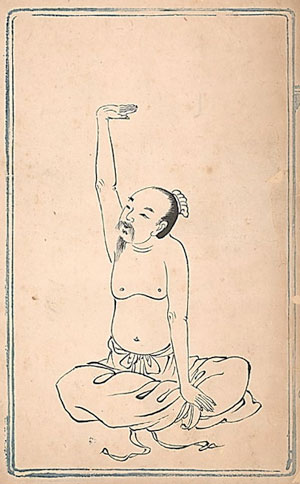 If you asked the average person how Traditional Chinese Medicine (TCM) keeps you healthy, they would probably answer that it uses acupuncture needles.
If you asked the average person how Traditional Chinese Medicine (TCM) keeps you healthy, they would probably answer that it uses acupuncture needles.
That is a good start.
TCM is a complex understanding of how Qi, or life force, affects your health. Qi flows through meridians passing through points which can be used to regulate and control that flow. When the flow of Qi increases, decreases or its quality changes, your health is affected. The most common way to manage the flow of Qi is with acupuncture needles.
But TCM is much more than needles.
In the second part of our two-part series “More than Needles,” you will learn three ways to keep yourself healthy using Traditional Chinese Medicine principles at home. By using these techniques in your daily life, you will be in charge of your health. continue reading
More than Needles: 6 TCM Therapies You May Never Have Heard of
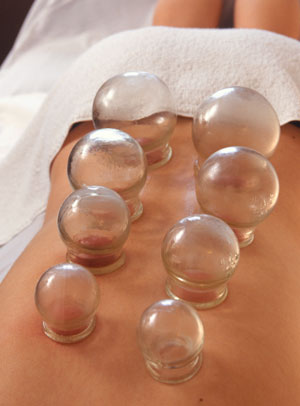 Most people know that one way to feel better is with acupuncture needles. You go to your acupuncturist feeling bad. I put in a few needles. You leave feeling lighter, energized, more pain-free.
Most people know that one way to feel better is with acupuncture needles. You go to your acupuncturist feeling bad. I put in a few needles. You leave feeling lighter, energized, more pain-free.
Using acupuncture needles to heal is part of a broader medical system called Traditional Chinese Medicine (TCM). By observing body systems and the links between symptoms, TCM developed a medical philosophy about the flow of Qi, or life force. When Qi is balanced, you feel healthy. When it is disrupted, blocked or unbalanced, poor health is the result.
In acupuncture, needles are placed at specific points along the meridians to balance the Qi.
But did you know that needles are just one way to balance Qi?
TCM is a flexible system. The principles can be applied in many ways and to many different therapies to achieve the same results.
In the following 2 part series, we will look at the many ways you can balance Qi. This first part of the series describes the TCM therapies that require the help of a practitioner.
6 Ways to Relieve Allergies Without Drugs, Shots or Needles
 Summer finally arrives.
Summer finally arrives.
The sun comes out. The flowers bloom.
Most people grab their sunscreen and head outside. But what do you do?
You close the windows, grab your antihistamines and hide in the house.
Wouldn’t it be great if you could enjoy being outdoors?
Allergies are widespread. According to WebMD, 20% of the population suffers from allergies or asthma, and 55% of the population tests positive for one or more allergens. Allergies are the 5th leading chronic disease in the US and cost the US health care system $7.9 billion annually.
If you can’t live with your runny nose, congestion or watery eyes, but you don’t want to take antihistamines or get allergy shots, what can you do to relieve your symptoms?
8 Sex Drive Killers that Ruin Your Romantic Date
 Date night can be fun, a celebration of love and romance. But for some people, romance is the last thing on their minds. If you have a low sex drive or no sex drive, the pressure to be romantic can make date night uncomfortable. You may want to show your sweetheart how much you care, but you just don’t feel it.
Date night can be fun, a celebration of love and romance. But for some people, romance is the last thing on their minds. If you have a low sex drive or no sex drive, the pressure to be romantic can make date night uncomfortable. You may want to show your sweetheart how much you care, but you just don’t feel it.
There are many reasons for low libido and some of them are not obvious. Find out if any of the sex drive killers below are ruining your date night plans. continue reading
7 Healthy Tips for Coping with Financial Stress
 If you feel stressed just living your life, you’re not alone.
If you feel stressed just living your life, you’re not alone.
Americans lead stressful lives. Jobs, relationships, health, family obligations, community responsibilities—they all take their toll.
In “Stress in America 2012,” an annual survey by the American Psychology Association, 1 in 5 respondents reported an extreme stress level of 8, 9 or 10 on a 10-point scale. In that same group 69% of respondents reported physical or non-physical symptoms of stress, including irritability or anger, fatigue, feeling overwhelmed or changes in their sleep.
The top source of stress according to 69% of the respondents is–money. continue reading

